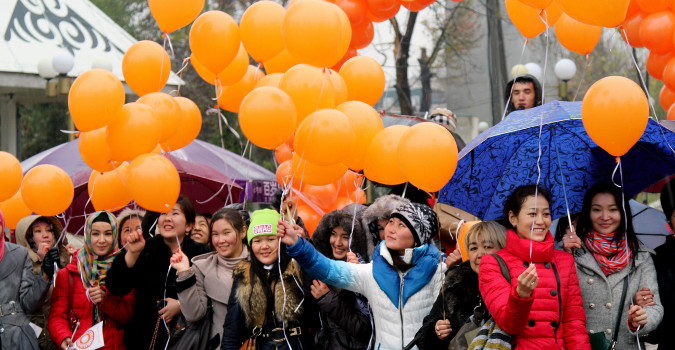Ending violence against women

Worldwide six out of 10 women experience physical or sexual violence in their lifetime. The figures in Kyrgyzstan are similar. A grave violation of human rights, violence is globally the leading cause of death and disability among women aged 16-44 years.
Violence against women and girls is also widespread in Central Asia. Women in Kyrgyzstan suffer from domestic violence, trafficking or other forms of physical or sexual abuse. In addition, the revival of some cultural and social practices, often mistakenly interpreted as part of religious customs, increasingly restrict women’s rights to control their lives.
Until recently, however, there was little hard data on gender-based violence in Kyrgyzstan. Credible, evidence-based data on violence against women and girls is critically important to design effective, targeted gender-sensitive policies.
The UN Women Country Office in Kyrgyzstan took the lead in finding this data.
UN Women is the lead agency with UNFPA and IOM on the Gender in Society Perception Study (GSPS), which uses KAP methodology. Supported by the UN Peace Building Fund under its Gender Initiative, this nationwide study will be a reliable source of information on gender inequality risk factors, gender-based violence and threats to inclusive peace building, including the risk of women’s involvement in radical religious groups.
UN Women in Kyrgyzstan plays a significant coordination role in advocating for women’s and girls’ rights in the framework of the UN Secretary General’s UNiTE to End Violence against Women campaign by mobilizing the government, the civil society, and other national and international organizations. This resulted in the Parliament approving legislation that toughens the penalty for the widely-practiced custom of bride-kidnapping.
UN Women provides support on introducing a gender dimension to the reform of the judicial system in Kyrgyzstan. UN Women provided gender expertise for drafting laws in compliance with international and national country commitments on gender equality and women’s empowerment and introduced measures on women’s and girls’ access to justice, especially in cases of gender-based violence. The draft laws are under discussion in the Parliament.